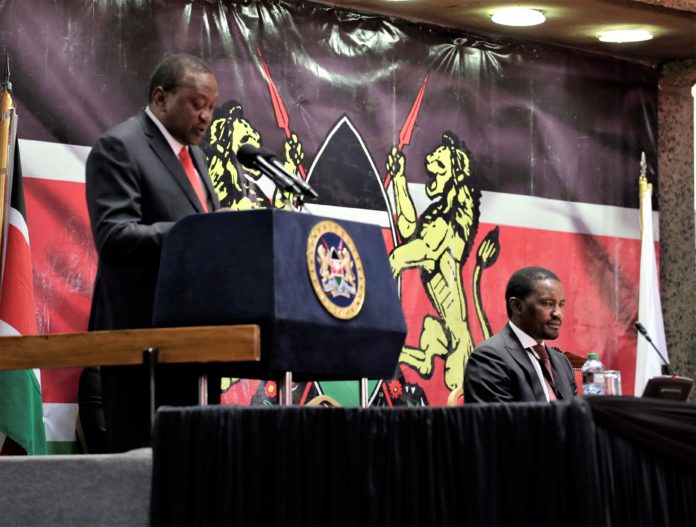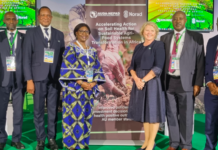By Winnie Kamau
The Coffee sector in Kenya has been bedevilled by many storms and hits key among them low prices, theft of coffee and lack of good governance and accountability in the cooperatives set to help the farmers.
The recurrent issues have seen coffee production plunge from 130,000 metric tonnes per year in the 80’s to less than 40,000 metric tonnes in 2016/17.
This has not only raised eyebrows in the Kenyan government but set President Uhuru Kenyatta to intervene personally. Speaking during the opening ceremony of the World International Coffee Forum held in Nairobi, President Kenyatta reiterated the need to protect the coffee farmers
“To protect the sweat of the brow of coffee farmers, my administration has embarked on a programme to entrench the principles of good corporate governance within the internal management of co-operatives,” said President Kenyatta.
The International Coffee Organization Director Jose Sette said the ICO Meeting was set to demonstrate ongoing commitment to enhance coffee production in the Country. “Kenya has a potential to be a leader in the specialty coffee market with its high quality of coffee as one of its most important asset to the world,” he said.
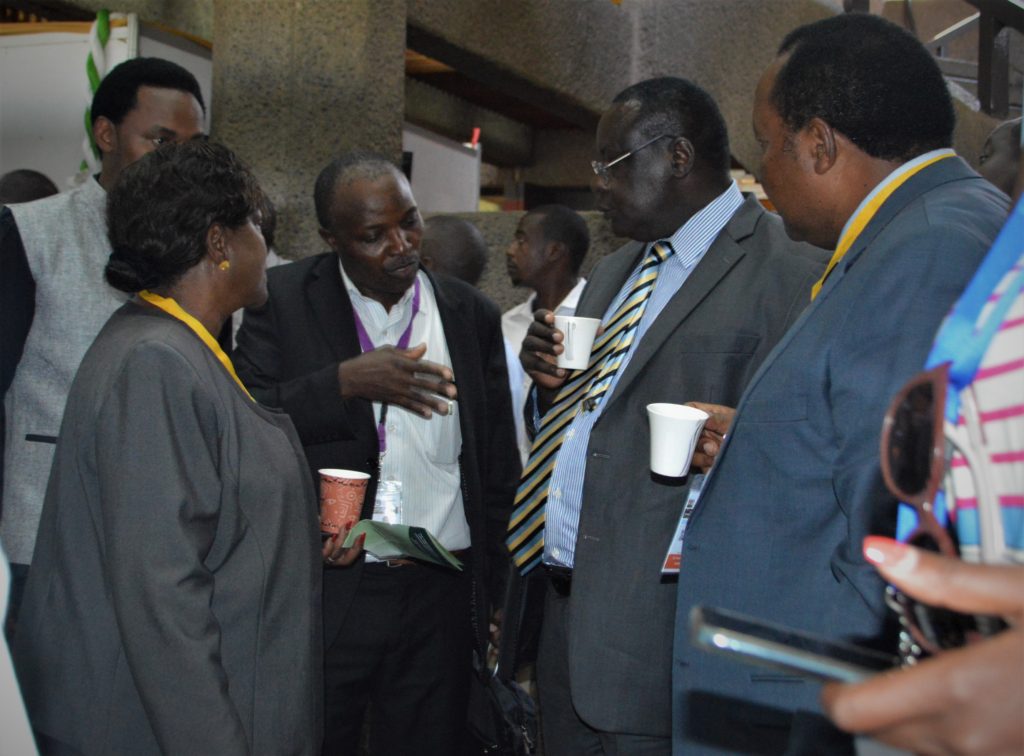
The ICO Director noted with concern the need for Kenya to develop domestic consumption throughout the continent as an example of membership. He emphasized that the Country should work towards increasing productivity, streamlining value chain, improve infrastructure and logistics, and also include young people in the coffee production affair as well as implement structural reforms.
Earlier on the Cabinet Secretary of Agriculture in his speech gave a glimpse of the Coffee sector in Kenya saying, “The sector makes valuable contributions to the National GDP, earns the country over USD 200 million foreign exchange, is also a source employment for an estimated 200,000 people,” Adding that “Over 700, 000 smallholder farmers and 3,200 coffee estates are involved in coffee production with an estimated 114,500Ha dedicated to coffee production”.
Also speaking at the side-lines of the forum Permanent Secretary of Agriculture and Research Professor Hamadi Boga had noted the need for a raft of measures to improve the coffee sector saying “For the last two years, the ministry has been working on coffee regulations. These are now ready and will be submitted to the office of the Attorney General for gazettment within the month.”
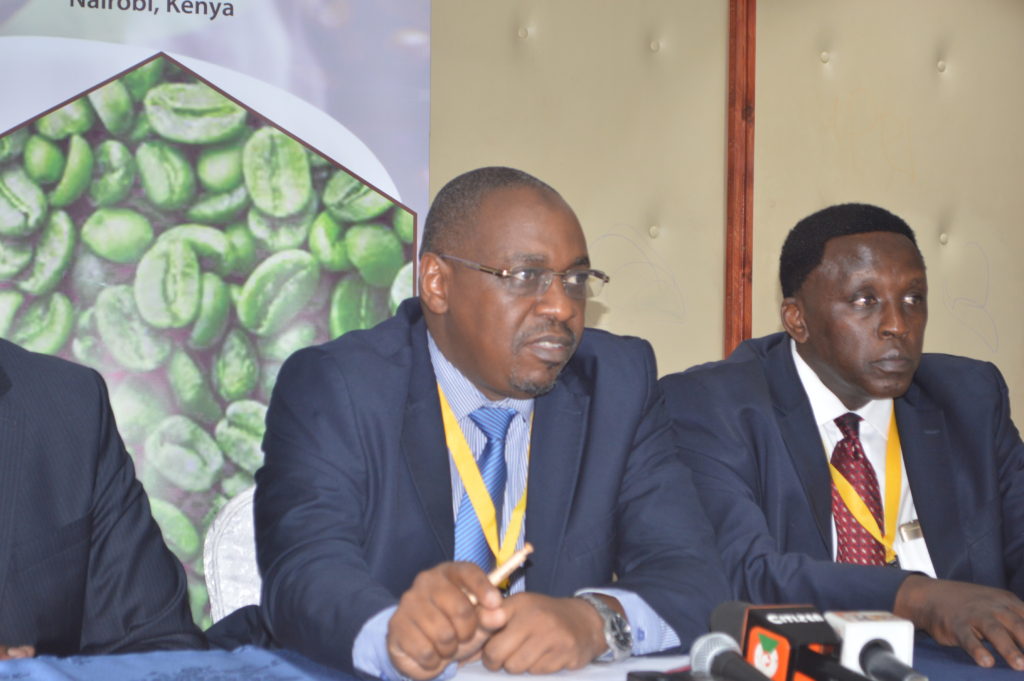
Noting on solutions for the coffee subsector, Prof. Joseph Keiyah, Chairman of the Coffee Subsector Implementation Committee said, “Prescription remedy is embodied in the on-going transformative farmer-centric coffee agenda that consists of 8 pillars. Among them are: the legal and regulatory framework that protects and vest property right of coffee to the farmer”
Professor Keiyah had also proposed a 3-year coffee subsidy program to address production and process costs, a coffee cherry advance fund to address late payment and modernization of the Nairobi Coffee Exchange to reduce transactions in the coffee auction.
Beginning July, coffee farmers from across the country will be able to access payments from a three billion Shillings Cherry Advance Revolving Fund which is aimed at resolving the problem of delays in coffee payment cycles.
“All coffee farmers across the country will be able to access the cherry advance at a modest interest rate of three per cent,” announced President Kenyatta during the Opening of the ceremony of the Coffee forum.
Kenya currently has over 450 cooperatives involved in the coffee milling process, some have gone ahead to do proper value addition. Cooperatives however continue to face significant governance challenges resulting in diminishing returns for farmers.
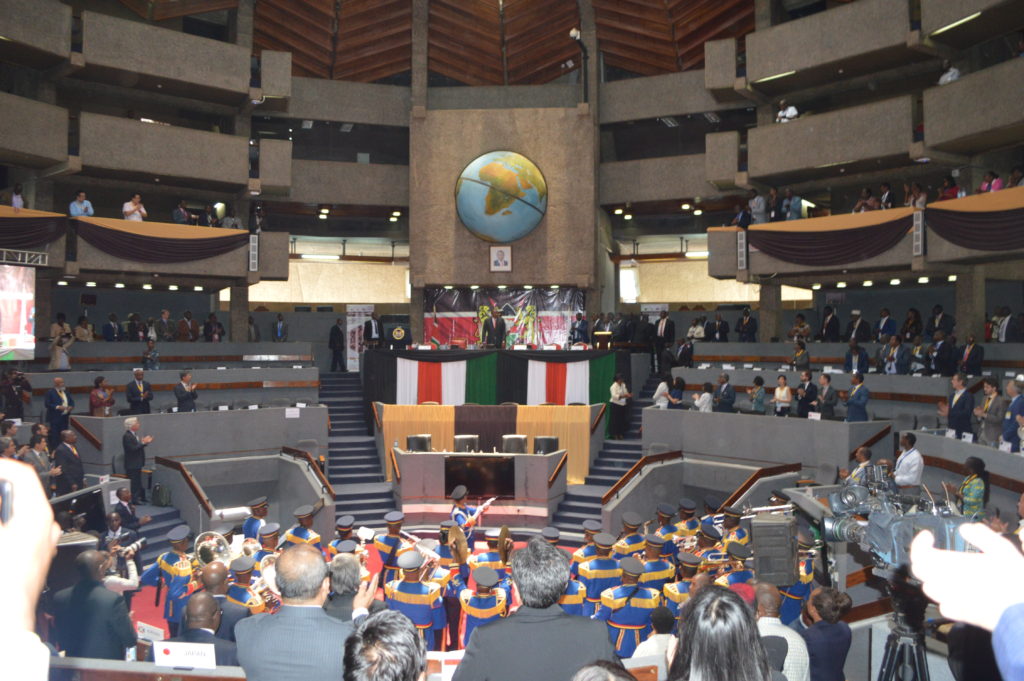
The President announced that under a new regulatory framework, the coffee sector will be liberalized to usher in a new era of direct marketing by co-operative societies.
Other interventions announced by President Kenyatta include a requirement for all coffee co-operatives to present audited annual reports to the agriculture cabinet secretary within six months of every calendar year, with a simultaneous release to the entire membership of the respective society and the public.
“The inaugural audits under the forthcoming enhanced regulatory framework will cover the calendar year 2019, and shall be submitted by all co-operatives on or before 31 December, 2019 to the Cabinet Secretary of Agriculture,” said President Kenyatta.
Another key intervention announced by President Kenyatta include an ambitious rehabilitation of 500 pulping factories in 31 coffee growing counties, the rehabilitation of planting materials and more investments in research and extension services.
President Kenyatta said the reforms he announced were designed to boost production, reduce the cost of processing and milling as well as increase transaction costs at the auction market.
Adding that the new institutional, legal and support services interventions are intended to reverse the negative trends facing the coffee sub-sector and safeguard the future of coffee farming in the country.
CS Kiunjuri assured farmers and the International Coffee Forum that the Ministry would work with County Governments to ensure it doubles its Coffee production from the current 40,000 Metric Tonnes to 100,000 Metric Tonnes per year.

